- Home
- Andy McNab
Battlefield 3: The Russian
Battlefield 3: The Russian Read online
Battlefield 3: The Russian
Andy Mcnab
Peter Grimsdale
Andy McNab and Peter Grimsdale's Battlefield 3: The Russian is the most ambitious, and substantial thriller ever to be published alongside a game. It is the best in its class. Never before has there been such close, two-way collaboration between an author and the creators of the game itself. Nor has the resulting book been written by a thriller writer with such a strong track record of bestsellers behind him. SAS hero, McNab, has used Battlefield 3 as his starting point to write a story that breaks new ground and can't be found within the game. Displaying all of his trademark grit, authenticity and insight, Battlefield 3: The Russian is a scorching top-of-the-line military and a heart-stopping race against time…
Andy McNab and Peter Grimsdale
BATTLEFIELD 3: THE RUSSIAN
For Lawrence
Author’s Note
I have been invited to work alongside many different gaming companies in the past, but up until now, I have always turned down their offers. But the opportunity to work with DICE and help develop Battlefield 3 was an opportunity I didn’t want to miss. Not only did it mean I’d get to work with gamers whose track-record of ground breaking games is world renowned, but it was also clear right from the start, that BF3 had something special, something that other games didn’t. The only word I can think of that explains it, is ‘substance’. BF3 wasn’t going to be a simple shoot ’em up — it was going to be packed with emotion, grit and the sheer physicality to take any gaming experience to another level.
I was first asked by the development team to help weave together the different storyline strands which make up the levels of the game. I worked alongside them providing ideas on how the action might play out, and just as importantly, giving possible reasons as to why the action might go in a particular way. I gave advice on how soldiers talk, act and think. For example, soldiers within the game needed to have the exact words and inflections to accurately reflect how soldiers in the real world speak. Words like ‘maybe’, ‘we will try to’ or ‘we will attempt’, don’t exist in a soldier’s world. We use words like ‘you will’, ‘I will’, ‘we will’. All dialogue is absolute because soldiers in the real world must be positive in everything they do. After all, real lives are at stake, so there is no room for failure.
The second part of my role was to work alongside the team’s graphic designers to make sure what you see and hear as you play the game feels ‘right’. We would sit for hours talking about how men and machines move tactically and how they look, even down to making sure that the soles of soldiers’ boots were dirty and worn. A desert camp that is attacked by US tanks within the game is an exact replica of a camp on the Iraq/Iran border that I flew over four years ago. Authentic detail is so important because our brains are very good at telling us when something isn’t just right.
The third part of my job was to work with the actors and stuntmen in the motion capture studios, to ensure the game’s characters moved like men who had been handling weapons and fighting with them for all of their lives. I also explained their lines to them, so that they could do their job and display the appropriate emotions like fear, anger and determination as they carried out the task ahead.
BF3 is the most sophisticated game ever because it gives the player a far deeper, more physical presence within the world in which he/she is playing. An ex-US Tank Commander who has seen the game said the whole experience was better than any simulator he had ever been in, and that it gave him flashbacks to the Iraq war. In a positive way.
But the game is just one window into the BF3 experience — this book is another. It seemed a natural progression to write a novel to complement the game as there was still so much more of the story to tell. That story is Dmitri ‘Dima’ Mayakovsky’s, a Russian ex-Spetsnaz Special Forces soldier. He finds himself in a world that no longer has the certainty of the old Communist dictatorship he once served.
Dima will certainly never win a humanitarian award for the role he plays in BF3, but he’s a character its impossible not to feel drawn to. The novel gives you the opportunity to see things from his point of view, and maybe understand the decisions and actions he takes when he finds himself in this most impossible of situations.
I hope you enjoy the book and game. I think they work really well together.
Andy McNab
Prologue
Beirut, August 1991
They’d been stood on alert since 0600. Moscow didn’t call until three, the hottest part of the day, in the hottest month, in what must have been the last non-air-conditioned hotel in Beirut. But that was the GRU’s style: they never failed to disappoint. Dima swung his legs off the bed, felt his head swim. Picked up the receiver. Two thousand kilometres away, Paliov’s voice, full of anticipation.
‘You set?’
‘For the last nine hours.’
‘A red Peugeot, Jordanian plates.’
‘Where?’
There was a pause. Dima pictured him, his desk in Moscow littered with memos and telexes, all stamped ‘Urgent — most secret’.
‘Four blocks from Khalaji’s hotel, the Majestic Palace, a parking lot on a bomb site.’
‘That narrows it down. Half the city’s a bomb site.’
‘The whole Iranian nuclear delegation’s at the hotel, so it’ll be swarming with their own security. But they’re not permitted out of the grounds. Our information is Khalaji’s all set. You won’t have any problem.’
‘You always say that and we always do.’
Paliov sighed.
‘I assure you, everything’s in place. Khalaji thinks the Americans are coming for him, so there’ll be no resistance. Just get in and drive. Tell him there’s a plane waiting just across the border and show him the documentation as we agreed. Once you’re on the move, if he realises who you are, what can he do? Just have the autojet ready.’
The chemical cosh: always the GRU’s answer to any problem.
‘And if there is a problem?’
‘Kill him. Better Iran’s nuclear prodigy dead than the Americans really do get their hands on him.’
Paliov rang off.
Dima dropped the phone back on to its cradle and looked across at Solomon.
‘It’s a go.’
Solomon sat cross-legged on his bed, the disassembled pieces of his US-sourced Colt 45 laid out in front of him. He didn’t react, just glared — his default expression. Still so young — twenty — but projecting an intelligence that would have been intimidating in someone twice his age. Once Dima had been his mentor but Solomon didn’t need mentors now. Beside him Dima felt old and inferior, not a good feeling before a hit. For a few seconds neither spoke as they listened to the overhead fan stirring the soupy city air. Near the window a fly was noisily trying in vain to separate itself from a slow gluey death on the wax ribbon. Outside in the traffic, horns blared, the collective frustration of Beirut’s drivers at the permanent gridlock. Then, without warning, Solomon’s face split into a mirthless grin.
‘You know the part I’m looking forward to?When Khalaji realises he’s not headed to the land of the free. I want to see that look.’
Not for the first time Dima wondered about his protégé. Particularly disturbing was the pleasure Solomon took in others’ misfortune. And on this, his first GRU field assignment, how come he manages to stay so cool, Dima wondered. He got up, went to the bathroom, sneaked a sip of vodka from the flask in his washbag. Just a small one to see him through the next few hours. He returned to the room, picked up his 45. Holstered it. Solomon frowned.
‘You cleaned it?’
‘Yes, it’s fine.’
Solomon raised th
e barrel of his own gun and examined it for the umpteenth time. ‘With all the dust here. Plus these 45s are notorious.’
Know-all, thought Dima. It was the ammunition they should be worrying about. Bootleg bullets with a weak charge. Why should they use this American crap anyway? Paliov’s obsession with disguise. Never mind the weapons, just get the intel right.
He glanced at the ejected mag and the rounds. Solomon had scored a cross on the nose of each bullet. He was using JHP rounds for maximum damage. Dima’s hope was that no shots would be fired today.
‘Let’s do it.’
They took a cab, an Opel with several different coloured panels. The interior stank of sweat and the driver’s lunch. Solomon sat, arms folded, sullen as a teenager forced to take out the trash.
‘If we were CIA we’d have our own car and our own driver,’ he said, in his perfect American English. ‘And our own radio net.’
‘Maybe you chose the wrong side.’
He said nothing, as if he was thinking the same.
‘Look on the bright side.’ Dima tapped his chest. ‘At least we get to keep these polo shirts with the logo. And the chinos.’ He slapped Solomon’s thigh.
‘Yeah, courtesy of the souk, run up by a kid cross-legged at a sewing machine who should be at school. They look about as American as falafel.’
‘Khalaji won’t notice. He’s a physicist.’
‘He’s been in America once. You haven’t.’
Dima gave him a reproachful look. Solomon’s attitude had nearly got him flung out of his fast-tracked Spetsnaz training. From day one he’d been marked down as trouble. Always awkward, always challenging his tutors, always a better idea of his own. They complained to Dima, to Paliov, and then to Dima some more. Dima could only blame himself. Solomon was his find, plucked by him from the blasted slopes above Kandahar in the dying days of Russia’s futile occupation. He had been part of the great diaspora of youth who flocked to Afghanistan to help defeat the Evil Empire. Dima, operating undercover, spotted the boy’s potential and turned him. His calm, his discipline, his amazing facility with languages, and his ruthlessness were precious assets. The GRU needed him, Russia needed him, Dima insisted. Okay, they said. When his two years are up, he’s on your watch. This was Solomon’s first assignment and Dima was having doubts.
They left the cab a few blocks from the hotel, took a walk past it, found the bomb site parking lot. Just the short distance through the sticky smog had already drenched him in sweat. There was no sign of the Peugeot, but he spotted a small bar opposite. As if pulled by a magnetic force, Dima headed straight for it, slammed a five dollar bill on the counter and ordered a double.
‘What are you having?’
Solomon lurked by the doorway.
‘Just water.’
‘You have any vices at all?’
Solomon gave him a blank glare that seemed to say, ‘Does it look like it?’, and again Dima felt uneasy.
On a shelf above the bar was a small black and white TV. An image of Gorbachev, released from house arrest, but neutered, humiliated. The great hope — now hopeless as the Soviet Union crumbled around him, the revolution he had started careering out of control. Where would it end? All Dima could envisage was chaos. Hardly the great socialist dream he had promised Solomon he was signing up for.
‘Maybe Khalaji will help put us back on top.’ Dima tapped the bulge under his jacket. ‘Think about it: portable nuclear capability.’
Dima’s irony was lost on Solomon. For the first time that day, the boy’s eyes lit up. The idea had caught his imagination as it had fired up Paliov and the rest of their masters back in Moscow. Dima slapped down another five dollar bill and ordered the same again.
He’d warned Paliov there’d be a problem, and now, as the Peugeot came into view, he saw what it was. Coming slowly up the street, it almost ground to a halt as a wheel hit one of the many potholes. The car was more than fully laden.
‘Fuck. He’s got his whole family in there.’
There was a fresh scrape all down the side, exposing bright metal, and the offside end of the front bumper was bent forward as if it had got entangled with another vehicle. The car swerved erratically before bottoming as it mounted the curb.
‘Wait,’ Dima hissed at Solomon, who was starting to cross the street. ‘We need to check if he’s being followed.’
That second vodka didn’t feel so great now.
From the other side of the road they could see Khalaji at the wheel, his wife beside him, heads twisting round, looking, panicking.
That’s Plan A out of the window, thought Dima. What the hell was Plan B?
Nothing else came up the street behind them. Dima and Solomon walked towards the car. As soon as Khalaji saw them he leapt out. A wiry man, his shirt collar way too big for his scrawny neck.
‘Hi, hi. Over here!’
This guy has no idea! Dima motioned to him to cool it, get back in the Peugeot. As they got nearer they could see the back seat was full of children.
Dima felt the contents of his stomach rearrange themselves.
‘We’ll have to kill them,’ said Solomon. ‘Sedate him first. Then get them out of the car. He’ll never know what happened.’
Another fucking fiasco. Blame Paliov as he might, in the end Dima knew it was his own fault for agreeing to the mission. It just wasn’t in his nature to say no — especially these days with all the old guarantees of employment being torn up.
Khalaji was back in the car, window down, eyes bulging with expectation. One of the children in the back was wailing.
‘Mr Khalaji, I’m Dave,’ said Dima.
‘Dave. .’ repeated Khalaji, frowning, as if he was trying out the name. ‘The message said Dean.’
Shit, thought Dima. What had they agreed? Dave, Dean, Dima, not a lot of difference. He felt his head clouding. Maybe the vodka hadn’t been such a good idea. Or maybe he should have had a third.
The wife leaned across her husband, frowned at Dima from under her veil, snapped at Khalaji in Farsi. ‘I can smell liquor on his breath.’
Suddenly Solomon was at Dima’s side, edging him away from the car window, wearing a broad grin like he had never seen on his face before.
‘Hey folks, how y’all doin’ today? My name’s Dean and we’ll be taking you from here on to your destination. Ma’am, if you’d step out of the car please, and your little ones.’
If there was anymore to Solomon’s sales patter Dima wasn’t going to hear it, nor were the Khalajis, because what happened next rendered their feeble cover story redundant. A pair of new but dusty Chevy Suburbans swung into view and slewed to a halt in the middle of the street. Eight doors swung open and eight Caucasian men in T-shirts, shorts and shades stepped out, all armed. Four covered, four approached. Two of those covering took aim at Dima. Khalaji’s wife screamed so loud Dima’s ears sang.
Solomon was no longer at his side. At the first sign of trouble he had made himself invisible among the parked vehicles.
‘Hands in the air, cowboy,’ one of the shaded ones shouted, repeating the order in Arabic for good measure. Dima fumbled for his 45, aimed, squeezed, missed, aimed again — and it jammed. A fraction of a second later and the gun was gone from his hand — which was now spurting blood. The Yank had shot it clean out of his grip. Dima dropped to the ground as the Americans got to the other side of the car, opening the doors, reaching in and scooping up the Khalaji family into the bosom of democracy. Dima cursed Paliov for his stupid, ill-planned, under-resourced missions, he cursed the 45, the one or two too many vodkas and pretty much everything else about his shitty life so far.
A flicker of movement between a parked Datsun and a Mercedes — Solomon, behind the cars, choosing a position. And from under the Peugeot he saw one of the Americans inching towards him round the car, taking no chances. With his good right hand, Dima wrestled the Beretta from the left pocket of his chinos and fired at one of the American’s feet — just as he lifted it.
He heard
doors slamming, the Americans retreating.
‘Family secured. Good to go. Go now!’
Better dead than the Americans get their hands on him. Dima hadn’t shared that with Solomon. Didn’t need to. Solomon would know. The bullets, that family. . The American whose foot Dima had just missed swung into view, big jaw, Zapata moustache, mirror shades.
‘You Commie cunt.’ The American lifted hisM9, took aim. The air between them exploded.
The American sank to his knees, his forehead cratered by the bullet that had entered the back of his head and chewed its way out front. His mouth had turned into a perfect O as if preparing to sing. He hovered there a second, then he slumped on top of Dima, pinning him down, the contents of his smashed head emptying out over his face.
There were more shots from Solomon’s position. More screams and shrieks –
‘fuckoutahererightnow!’ Doors slamming and furious wheelspin — and then silence.
Solomon lifted the corpse off Dima, wiping his face with the fake polo shirt.
Dima breathed out.
‘You got Khalaji? You stopped them taking him, didn’t you?’
Solomon shook his head slowly.
‘How come?’
He prodded the American corpse with his toe.
‘It was either shoot Khalaji or him.’
Dima let a couple of seconds pass while the meaning of what Solomon was saying sank in.
‘You saved my life.’
No comment from Solomon, just a glare of contempt. Eventually he nodded.
‘Yes. I fucked up.’
1
Moscow, 2014
Dima opened his eyes, a second of blankness before he remembered where he was and why. The call could come at any time, they’d said. It was just after three. Bulganov’s voice was thick with fatigue. He told him when and where. He started to give directions, but Dima shut him up.
‘I know where it is.’
‘Just don’t fuck up, okay?’
‘I don’t fuck up. That’s why you hired me.’ Dima hung up.

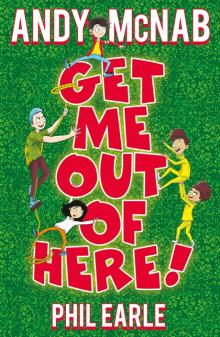 Get Me Out of Here!
Get Me Out of Here!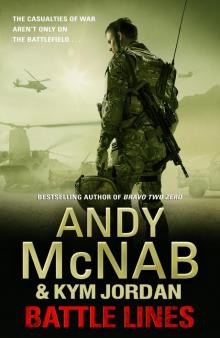 Battle Lines
Battle Lines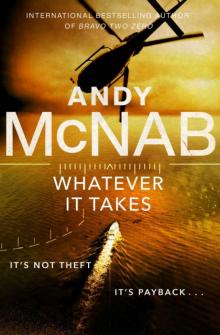 Whatever It Takes
Whatever It Takes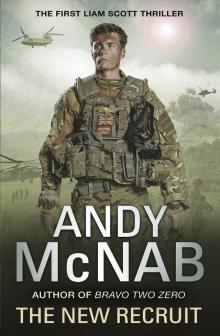 The New Recruit
The New Recruit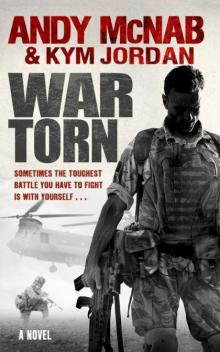 War Torn
War Torn Brute Force
Brute Force Crossfire
Crossfire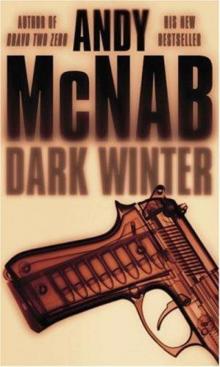 Dark Winter ns-6
Dark Winter ns-6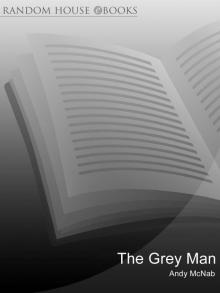 The Grey Man
The Grey Man Spoken from the Front
Spoken from the Front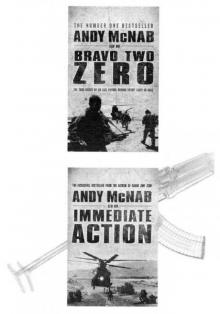 Meltdown
Meltdown Recoil
Recoil Nick Stone 1 - Remote Control.
Nick Stone 1 - Remote Control.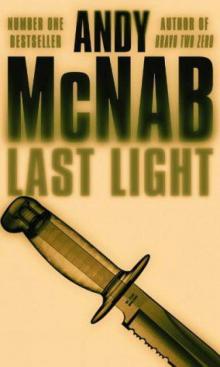 Last Light ns-4
Last Light ns-4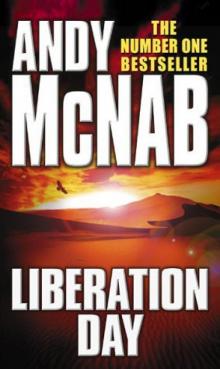 Liberation day
Liberation day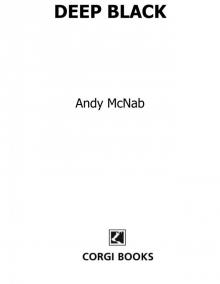 Deep Black
Deep Black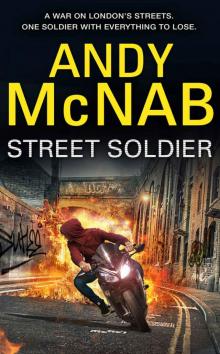 Street Soldier
Street Soldier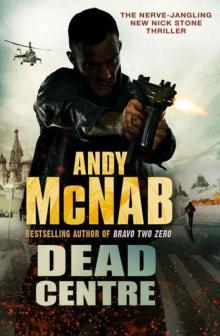 Dead Centre ns-14
Dead Centre ns-14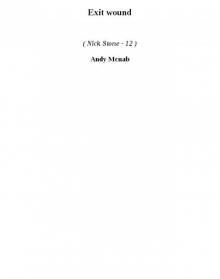 Exit wound ns-12
Exit wound ns-12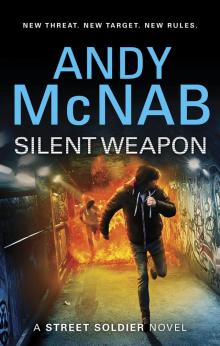 Silent Weapon
Silent Weapon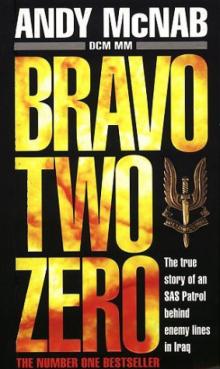 Bravo two zero
Bravo two zero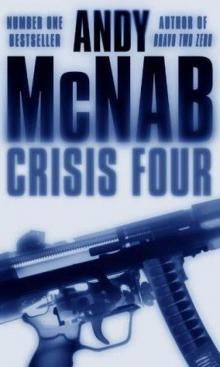 Crisis Four ns-2
Crisis Four ns-2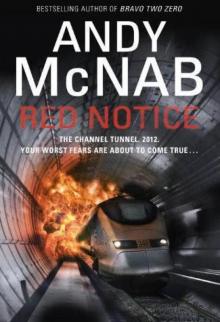 Red Notice
Red Notice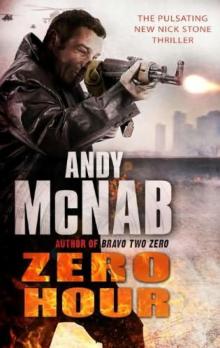 NS13 Zero Hour
NS13 Zero Hour Firewall
Firewall Last Light
Last Light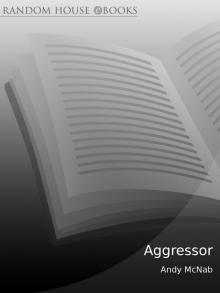 Aggressor
Aggressor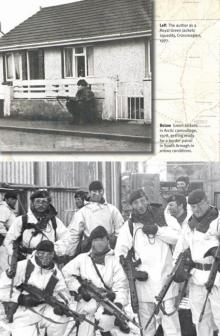 Seven Troop
Seven Troop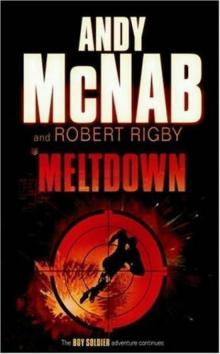 Meltdown bs-4
Meltdown bs-4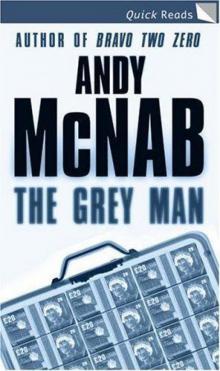 The Grey Man (quick reads)
The Grey Man (quick reads)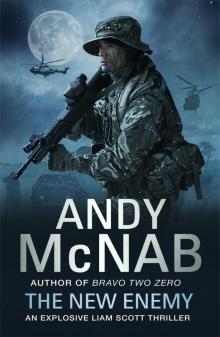 The New Enemy
The New Enemy Avenger
Avenger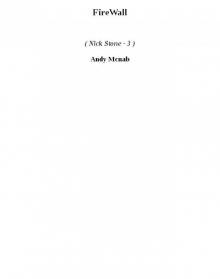 FireWall ns-3
FireWall ns-3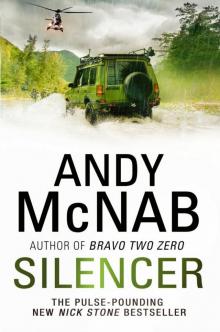 Silencer
Silencer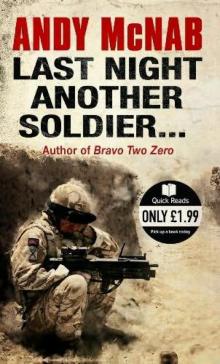 Last Night-Another Soldier…
Last Night-Another Soldier…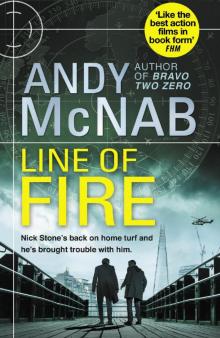 Line of Fire:
Line of Fire: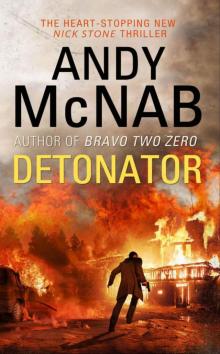 Detonator
Detonator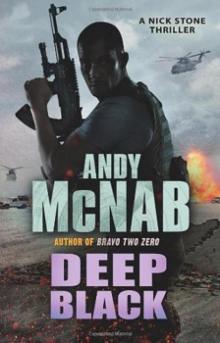 Deep Black ns-7
Deep Black ns-7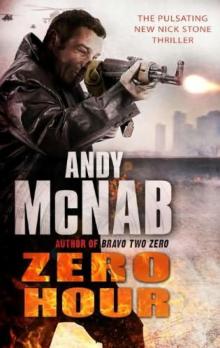 Zero Hour (2010) ns-13
Zero Hour (2010) ns-13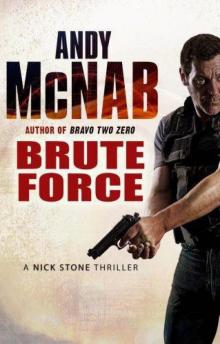 Brute Force ns-11
Brute Force ns-11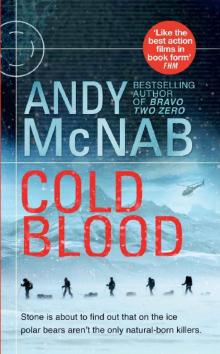 Cold Blood
Cold Blood Terminal Velocity
Terminal Velocity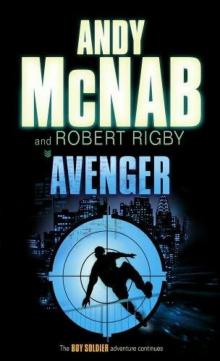 Avenger bs-3
Avenger bs-3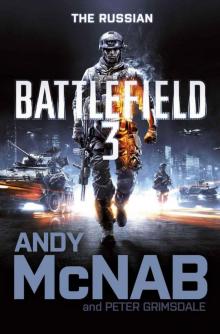 Battlefield 3: The Russian
Battlefield 3: The Russian DropZone
DropZone Zero Hour
Zero Hour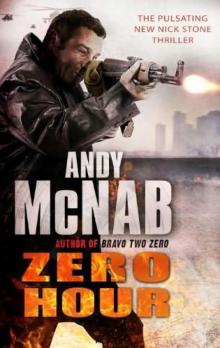 NS13 Zero Hour (2010)
NS13 Zero Hour (2010)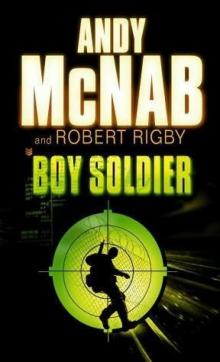 Boy soldier bs-1
Boy soldier bs-1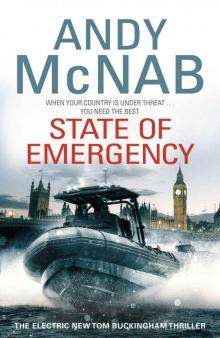 State Of Emergency: (Tom Buckingham Thriller 3)
State Of Emergency: (Tom Buckingham Thriller 3)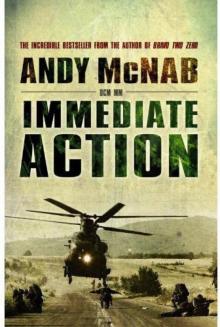 Immediate Action
Immediate Action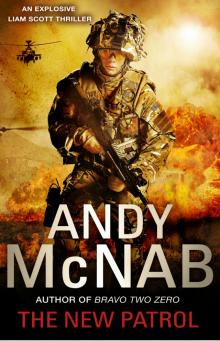 The New Patrol
The New Patrol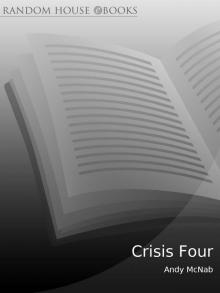 Crisis Four
Crisis Four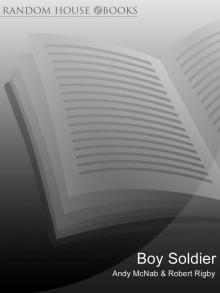 Boy Soldier
Boy Soldier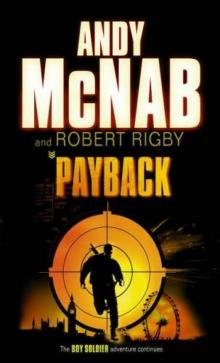 Payback bs-2
Payback bs-2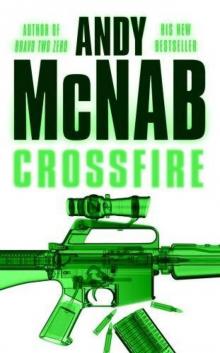 Crossfire ns-10
Crossfire ns-10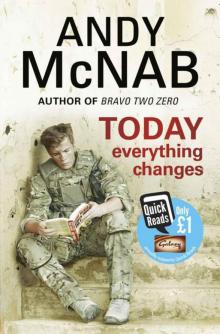 Today Everything Changes: Quick Read
Today Everything Changes: Quick Read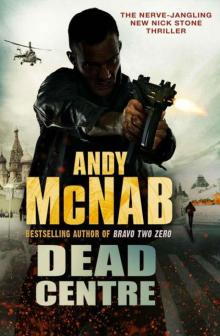 Dead Centre
Dead Centre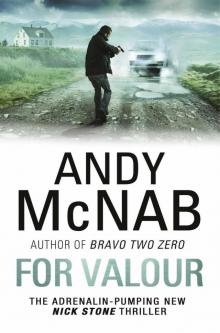 For Valour
For Valour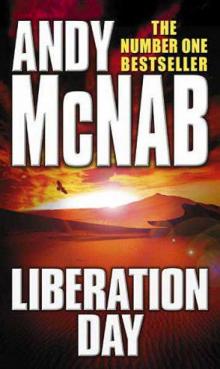 Liberation Day ns-5
Liberation Day ns-5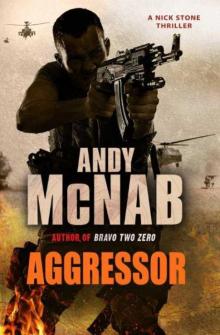 Aggressor ns-8
Aggressor ns-8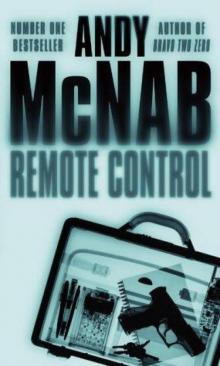 Remote Control ns-1
Remote Control ns-1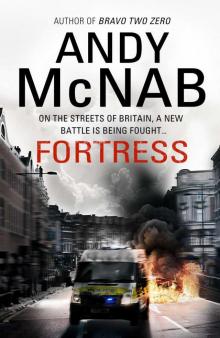 Fortress
Fortress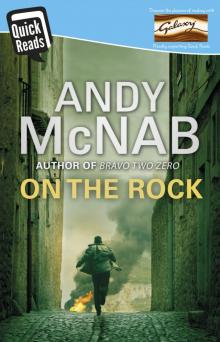 On the Rock
On the Rock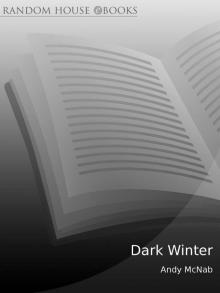 Dark Winter
Dark Winter